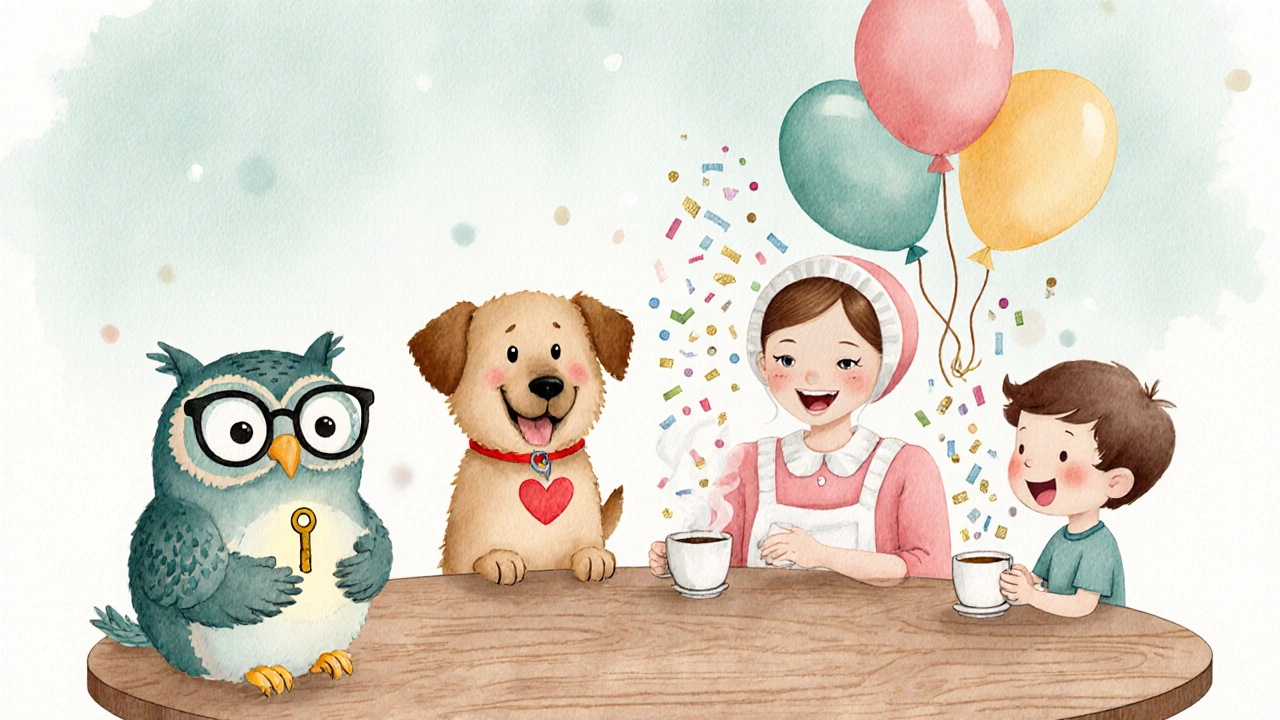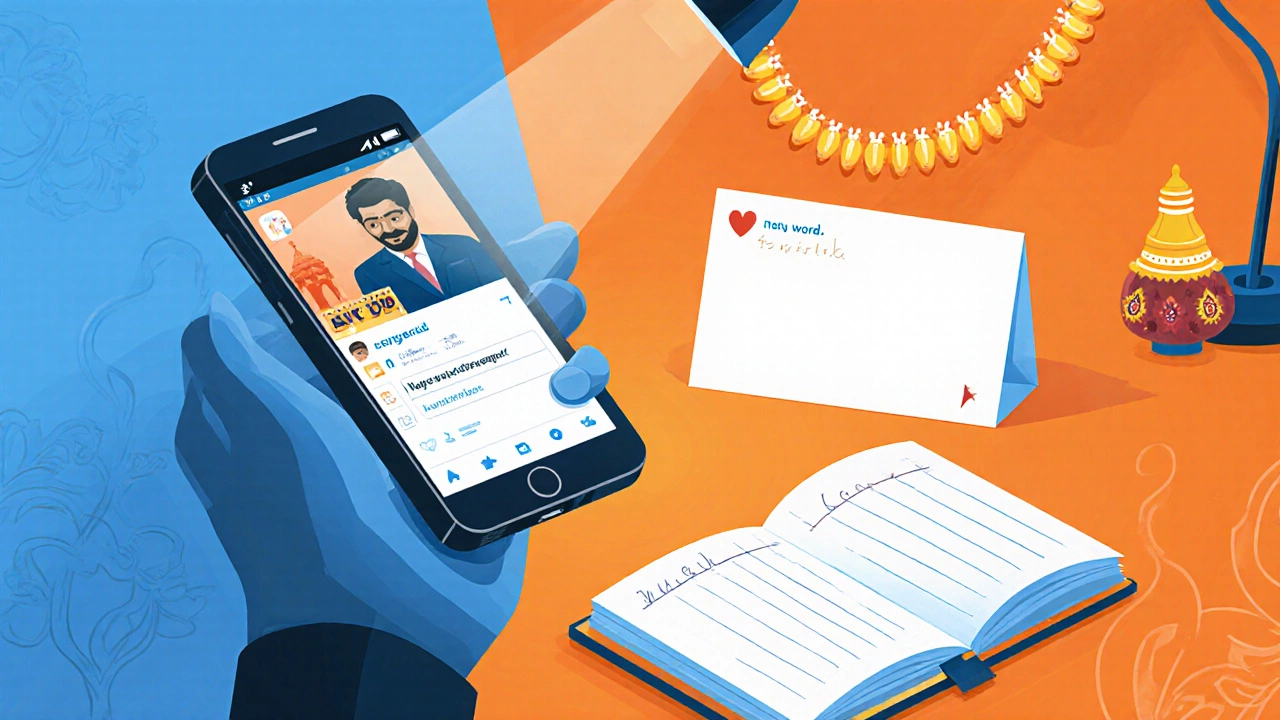Friendship Phrase Generator
Create Your Friendship Phrase
Select a core element of friendship and an adjective to generate a meaningful two-word definition.
How to use this phrase:
Ever tried to sum up friendship is a mutual relationship built on affection, trust, and support in just two words? It feels like a puzzle, yet the answer can be surprisingly simple. Below we unpack why those two words matter, explore the feelings behind them, and give you ready‑to‑use options for captions, poems, or a quick text to a close buddy.
Key Takeaways
- Friendship is essentially a deep bond that thrives on mutual trust and loyalty.
- Two‑word descriptors capture the core of the relationship without over‑explaining.
- Cultural, psychological, and linguistic factors shape how we label friendship.
- Choosing the right pair of words can boost a message’s emotional impact.
- A handy table of popular two‑word combos makes it easy to pick the perfect phrase.
Why Reduce a Rich Relationship to Two Words?
Human beings love shortcuts. Whether it’s a headline, a tweet, or a WhatsApp status, we try to fit big ideas into tiny spaces. When it comes to friendship, the challenge is to keep the essence while trimming the fluff. Two‑word phrases work because they:
- Grab attention instantly.
- Fit neatly into social‑media character limits.
- Leave room for personal interpretation.
But the trick is not to make the phrase feel hollow. That’s why we need a solid understanding of what friendship actually is.
Core Elements of Friendship
Researchers break friendship down into four pillars. We’ll label each pillar with a short, concrete term-each of these can be a candidate for a two‑word combo.
- Trust - the belief that the other will act in your best interest.
- Loyalty - sticking by each other through ups and downs.
- Support - offering help, advice, or a listening ear.
- Enjoyment - having fun together, sharing jokes, and creating memories.
When these four pillars align, the relationship feels effortless, and that feeling can be summed up in just a couple of words.
Popular Two‑Word Descriptors
Below is a ready‑made table that pairs the pillars with common adjectives. The list isn’t exhaustive, but it covers the most frequently used combos on social platforms and in literature.
| Core Pillar | Adjective | Resulting Phrase | Typical Use |
|---|---|---|---|
| Trust | Unbreakable | Unbreakable Trust | Quotes, birthday cards |
| Loyalty | Steadfast | Steady Loyalty | Social media bios |
| Support | Mutual | Mutual Support | WhatsApp statuses |
| Enjoyment | Pure | Pure Fun | Instagram captions |
| Bond | Deep | Deep Bond | Poetry, short stories |
| Connection | Instant | Instant Connection | Friendship apps |
| Companionship | Constant | Constant Companion | Life‑coach blogs |
| Empathy | Shared | Shared Empathy | Therapy articles |

How Culture Shapes the Two‑Word Choice
In India, the word “dost” already packs a lot of meaning. When we add a qualifier, it becomes more textured: “lifelong dost” or “faithful dost.” In Japan, the term “nakama” carries a sense of belonging, so “true nakama” feels natural. Western English speakers tend to pair “friend” with adjectives like “best,” “close,” or “true.” Understanding the cultural backdrop helps you pick a phrase that resonates locally.
Psychology Behind Short Labels
Why does a two‑word label stick in our brain? Cognitive scientists point to the “dual‑coding theory.” When a phrase combines a concrete noun (e.g., “bond”) with a vivid adjective (e.g., “deep”), the brain stores both a visual picture and a verbal cue, making recall easier. That’s why “deep bond” feels more memorable than a longer sentence.
Crafting Your Own Two‑Word Definition
If the ready‑made list doesn’t capture your vibe, follow this quick three‑step method:
- Identify the dominant pillar in your relationship (trust, loyalty, support, enjoyment).
- Choose an adjective that reflects intensity (e.g., “unwavering,” “endless,” “genuine”).
- Pair them and say the phrase aloud - does it spark an emotion? If yes, you’ve got a winner.
Example: You and your college roommate always share honest feedback. The pillar is trust. Pick “unwavering.” Result: “Unwavering Trust.” Use it as a status, a line in a thank‑you note, or even a tattoo idea.
Practical Applications
Below are five everyday places where a two‑word friendship tag can level up your communication:
- Social Media Bios: “Steady Loyalty” fits perfectly under a profile picture.
- WhatsApp Statuses: A short “Pure Fun” updates friends without clutter.
- Greeting Cards: Write “Unbreakable Trust” inside a birthday card for a more heartfelt touch.
- Poetry & Short Stories: Use “Deep Bond” as a thematic hook.
- Personal Journals: Reflect on the day with “Mutual Support” to remind yourself of the day's positives.

Common Pitfalls & How to Avoid Them
Even a great phrase can fall flat if you’re not careful. Watch out for these mistakes:
- Over‑cliché: “Best Friend” is safe but forgettable. Aim for specificity.
- Misaligned adjective: Pairing “cold” with “friendship” sends the wrong signal.
- Ignoring audience: A formal business network might appreciate “Professional Ally” over “Pure Fun.”
Run the phrase by the person you’re describing, or simply ask yourself if it captures the feeling you want to convey.
Mini‑FAQ
Frequently Asked Questions
Can "friendship" be summed up in just two words?
Yes. While friendship is a complex bond, two words that highlight its core pillar-like “deep bond” or “mutual support”-can capture the essence effectively.
What are the most popular two‑word friendship phrases?
Common choices include “Unbreakable Trust,” “Steady Loyalty,” “Pure Fun,” and “Deep Bond.” The table above lists eight widely used combos.
How do I choose the right adjective?
Reflect on the dominant quality of your relationship. If trust is strongest, try adjectives like “unwavering” or “unbreakable.” If fun is key, opt for “pure” or “endless.”
Should cultural context affect my choice?
Absolutely. In Hindi‑speaking circles, “lifelong dost” feels natural, while in Western settings “true friend” works better. Align the phrase with local linguistic habits for greater impact.
Is it okay to create a brand‑new two‑word phrase?
Yes. Originality can make your message stand out, provided the words clearly convey the intended feeling. Test it by saying it aloud or sharing it with a trusted friend.
Next Steps
Pick a pillar, attach a vivid adjective, and try the phrase in one of the practical spots we listed. If it feels right, you’ve successfully distilled a lifelong bond into a punchy two‑word label. Need more inspiration? Look at popular friendship memes, quote books, or even song lyrics-they often hide tidy two‑word gems you can remix.
Remember, the power of a two‑word definition lies not just in brevity but in how accurately it mirrors the heart of the relationship. So next time a friend asks, “What is friendship in two words?” you’ll have a thoughtful, culture‑savvy, and emotionally resonant answer ready.
